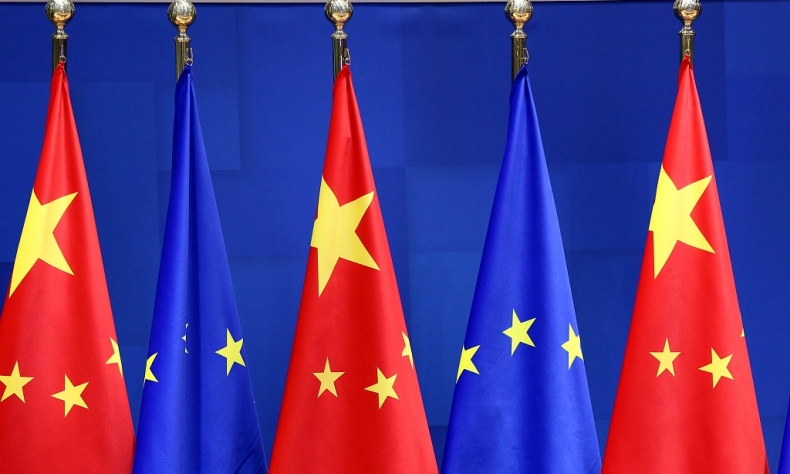EU-China Investment Treaty Shows Importance of Multilateral Engagement

In the coming years one should continue to expect an underlying stability to continue to drive EU-China relations. This is a relationship that will continue to be driven by cautious, rational and cool diplomacy, rather than turn into aggravated hostility.
On New Year’s Eve, China and the European Union confirmed the conclusion of an investment agreement, a treaty under negotiation for seven years. EU Commission President Ursula Von De Leyden described it as the most comprehensive agreement China has ever struck with a third party, and will involve expanding market access within the country to European business in a number of sectors, including finance and manufacturing, as well as securing China’s role in European markets and its renewable energy sector.
Although the EU and China have some differences, the key point is that Brussels previously had never truly shown an interest in signing up to the apparent “New Cold War” promoted by the U.S. and in dealing with China, and never signaled it would shut the door on multilateralism, dialogue and diplomacy.
The deal stands as a reminder that China ultimately remains a crucial economic and investment partner.
Because the European Union constitutes a major part of the West, it has been constant talking point that it has an “obligation” to side with the United States in waging confrontation against China under the mantra of “transatlanticism.”
Mike Pompeo for one, has constantly talked of a “transatlantic awakening” against China, and has aggressively lobbied European states to take a harder line against Beijing and block the entry of companies like Huawei into their 5G telecommunications networks. Despite this, it has always been apparent that the EU has been lukewarm in signing up to such an effort.
It has been widely assumed that because of electing Joe Biden as the new American president, who is expected to improve relations with Europe, the bloc would subsequently follow its “true interest” in dealing with China with more U.S. support.
Well, perhaps not quite. Such is a highly idealistic view of things that focuses too strongly on ideology rather than realism, and fails to comprehend the broader point that the European Union has a different geopolitical perspective than the United States and comprehension of its “interest,” and therefore will not always act in unity with Washington.
While America is dogmatic, the EU, an institution which should be understood as a collection of 26 sovereign states who cooperate together, operates on a model of negotiation, pragmatism and consensus. This means when we talk about a “collective foreign policy” within the bloc, it is far more measured and restrained.
As a result, while it may harbor certain different attitudes towards China as a whole, it does not buy in to the portrayal of Beijing as a zero-sum geopolitical adversary towards which confrontation and decoupling are the only answers.
The fact that trade, investment and cooperation wield great importance in EU-China relations. Not surprisingly, European states have not given up on the idea that engagement and multilateral dialogue with China can achieve results. The success in agreeing the EU-China investment treaty is a product of this.
Europe has sought to obtain broader market access within China in order to better consolidate its own interests, and has subsequently pursued negotiations to this end. It is, in fact, the second agreement concluded with China this year, the first being a mini trade deal on “geographical indications” regarding the origins of products.
Given this, talk of a so-called transatlantic alliance against China is premature, as it renders an unnuanced view of Europe’s position and undercuts foreign policy realities.
The EU may agree with the U.S. on some things, but not others. Beijing has understood this sentiment surprisingly well, and thus approached the EU in good faith and been prepared to offer concessions accordingly as part of its economic reform and opening up strategy.
Both parties recognize they have more to lose by resorting to geopolitical and trade confrontation, such as the U.S. has pursued, and thus are able to find a path to mutual co-existence and management.
Given this, in the coming years one should continue to expect an underlying stability to continue to drive EU-China relations. This is a relationship that will continue to be driven by cautious, rational and cool diplomacy, rather than turn into aggravated hostility.
Prudence has replaced zeal, and the EU-China investment treaty gives the former more leverage with China than the “sledgehammer” approach could ever hope to achieve.
 Facebook
Facebook
 Twitter
Twitter
 Linkedin
Linkedin
 Google +
Google +







